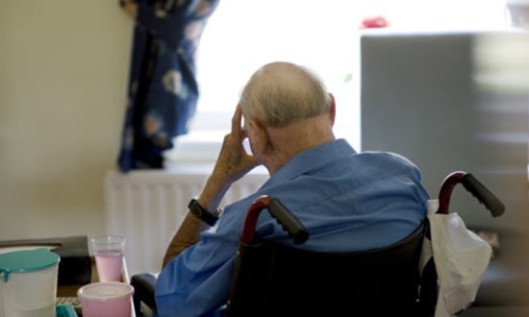Tags
abuse, archbishop, assisted dying, atrocities, atrocity, burden, canterbury, care, Carey, convenience, convenient, depress, die, disabilities, disability, disabled, euthanasia, fail, financial, former, function creep, George, help, inherit, Justin Welby, live, Lord, Lord Falconer, Mike Sivier, mikesivier, Mo Stewart, palliative, pay, rights, sick, suicide, support, Switzerland, terminate, Vox Political

Lord Carey: He may be demonstrating the amount of thought he has given to what unscrupulous people will do with his “change of heart”.
A “change of heart” by a former Archbishop of Canterbury over ‘assisted dying’ has dismayed at least one campaigner for the rights of people with disabilities.
Mo Stewart has been researching and reporting what she describes as the “atrocities” against the chronically sick and disabled in the UK for the last four years. She said Lord Carey’s decision to support legislation that would make it legal for people in England and Wales to receive help to end their lives would “play right into the hands of this very, very dangerous government”.
Justifying his change of position, Lord Carey said: “Today we face a central paradox. In strictly observing the sanctity of life, the Church could now actually be promoting anguish and pain, the very opposite of a Christian message of hope.
“The old philosophical certainties have collapsed in the face of the reality of needless suffering.”
The Assisted Dying Bill, tabled by Labour’s Lord Falconer, would apply to people with less than six months to live. Two doctors would have to independently confirm the patient was terminally ill and had reached their own, informed decision to die.
But Mo Stewart warned that the proposed legislation, to be debated in the House of Lords on Friday, would be subject to ‘function creep’, with unscrupulous authorities taking advantage of people with depression in order to relieve themselves of the financial burden of paying for their care.
“If this law is granted, what will be deemed a possibility for the few will, very quickly I fear, become the expected for the many,” she wrote in a letter to Lord Carey which she has kindly provided to Vox Political.
“It’s cheaper to help people to die rather than support them to live.
“There is a catalogue of evidence demonstrating that, in those countries where assisted dying is permitted, very often those taking their own lives are suffering from a clinical depression and leave our world to resist the perception that they are a burden to loved ones.
“I am stunned that you would use your voice to try to permit this to happen in the UK.”
She pointed out that medicine is an inexact science and policy changes such as this could have an enormous detrimental impact: “My own webmaster, who is now desperately ill with possibly only weeks to live, was advised he had less than six months to live over four years ago.
“Until very recently, he still enjoyed a high quality of life with his wife, family and friends; a life that could have been removed four years ago” had the Assisted Dying Bill been law at that time.
“What this debate is demonstrating is the failure of guaranteed high quality palliative care in the UK, that makes those with a life-limiting diagnosis feel that self termination is a reasonable solution,” she warned.
“If palliative care was at the peak of quality and access then there would be no need to ever consider such a Bill for this country, as those who wish to access self termination are usually living in fear of the possible physical suffering they may need to endure. This is a highway to clinical depression when quality of life is deemed to have disappeared with diagnosis.”
The current Archbishop of Canterbury, Justin Welby, has described the Bill as “mistaken and dangerous” and Mo said she believed he had explained the dangers well.
He said: “This is not scaremongering. I know of health professionals who are already concerned by the ways in which their clients have suggestions ‘to go to Switzerland’ whispered in their ears by relatives weary of caring for them and exasperated by seeing their inheritances dwindle through care costs.
“I have received letters from both disabled individuals and their carers, deeply concerned by the pressure that Lord Falconer’s bill could put them under if it became law.”
Mo Stewart’s letter concludes: “In the real world, this Bill – if passed – would, I have no doubt, lead to abuses where some were actively persuaded to self terminate for the convenience, and possibly the inheritance, of others.
“It’s really not a very long way away from an assisted dying bill to an assisted suicide bill.”
Follow me on Twitter: @MidWalesMike
Join the Vox Political Facebook page.
Vox Political needs your help!
This independent blog’s only funding comes from readers’ contributions.
Without YOUR help, we cannot keep going.
You can make a one-off donation here:
Alternatively, you can buy Vox Political books!
The second – Health Warning: Government! is now available
in either print or eBook format here:


The first, Strong Words and Hard Times
is still available in either print or eBook format here:





